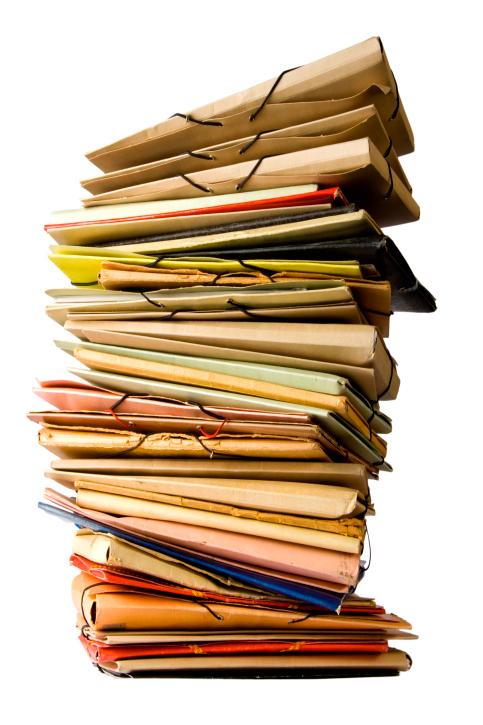
It seems like not long ago we were welcoming the new year with a kiss on our lips and confetti in our hair, but today we greet the start of spring with a bucket in one hand and a sponge in the other. However, spring cleaning is more than just giving things around the house a good scrub; it's also a great opportunity to declutter your home and office.
As many people with cancer and caregivers know, there is an awful lot of information and paperwork that accumulates after a cancer diagnosis and throughout treatment and survivorship. So what information is essential to keep? And what is the best way to keep it all organized?
Should it stay or should it go?
Here's a quick (but by no means comprehensive) list of important medical information to keep on file:
- Complete contact information for all of the doctors, other specialists, and treatment centers that have been involved in your care
- Copies of diagnostic test results and pathology reports
- Your diagnosis, including the specific cancer type and stage
- A list of the treatments you have received, including drug names and doses, sites and doses of radiation therapy, and details of any surgeries, as well as any complications or side effects you experienced
- A schedule for your follow-up care
- Details of any other major illnesses, chronic health conditions (such as diabetes or heart disease), or hospitalizations
- Your family cancer history
- Dates of past physical examinations, including screening tests and immunizations
- Copies of all your medical bills and insurance claims
As you sort through and clear out old paperwork, use a paper shredder for things that contain personal medical details and insurance information. This will help protect your identity.
Getting organized
There are many different ways to organize medical information. Some people prefer paper, and choose to use a filing cabinet, a planner, a three-ring binder, a file folder, or even just a box. Other people would rather save digital copies of test results and scans and type notes on the computer, scan their medical records, or use an online service. Both hard copy and digital methods can be successful. Just make sure to keep all of this information secure, either in a safe location, such as a safe deposit box or fireproof home safe, or by using password-protected files.
Cancer organizations like ASCO also provide many different tools to help keep track of important medical information. Here are just a couple of resources available on Cancer.Net:
- ASCO's cancer treatment plans and summaries help collect information about your cancer, cancer treatment, and follow-up care. By having all of this information in one place, it is easier to talk about your care with your doctor.
- The free Cancer.Net mobile app helps track symptoms and side effects, keeps track of questions to ask your doctor and records voice answers, and gives you a place to save information about your medications, including photos of labels and bottles—all on your smartphone or tablet.
The ASCO Answers guides to breast, prostate, lung, and colorectal cancer have check boxes to help keep track of recommended tests, procedures, and treatments, as well as space to write down answers to your questions and make other notes.
This post was revised by ASCO staff on June 29, 2022.
